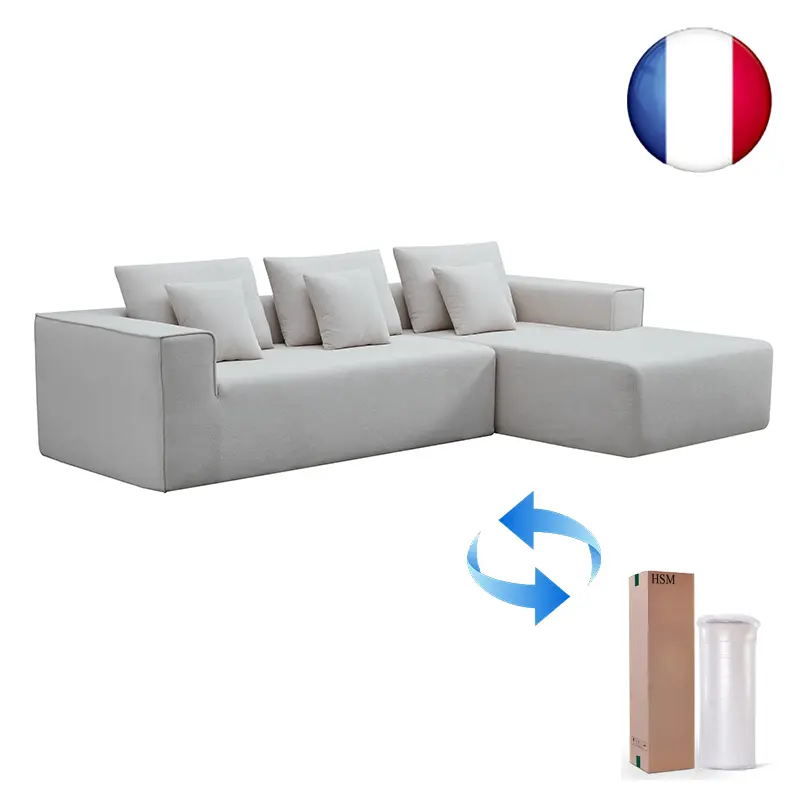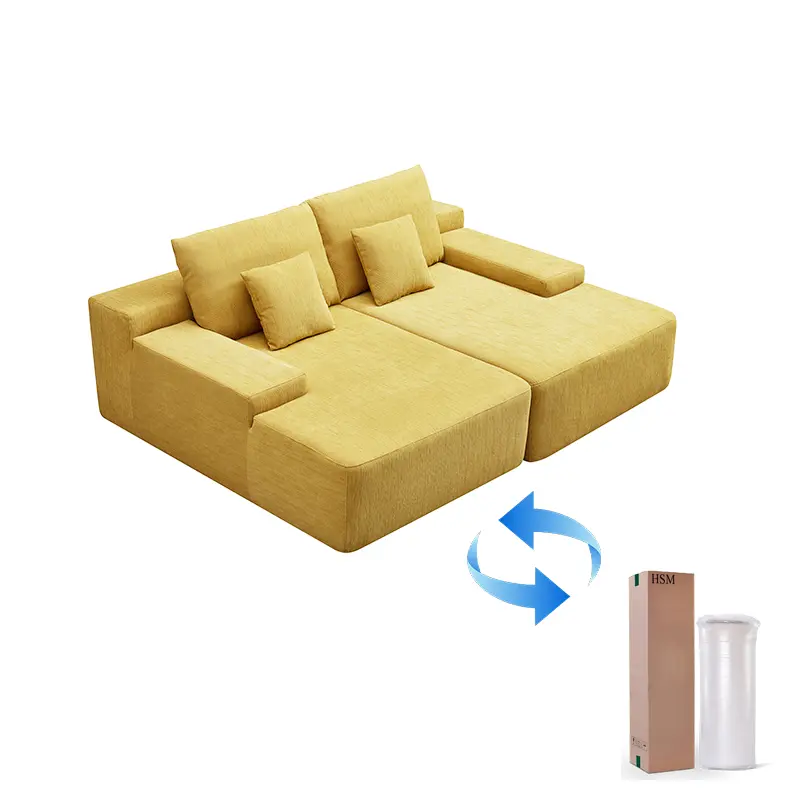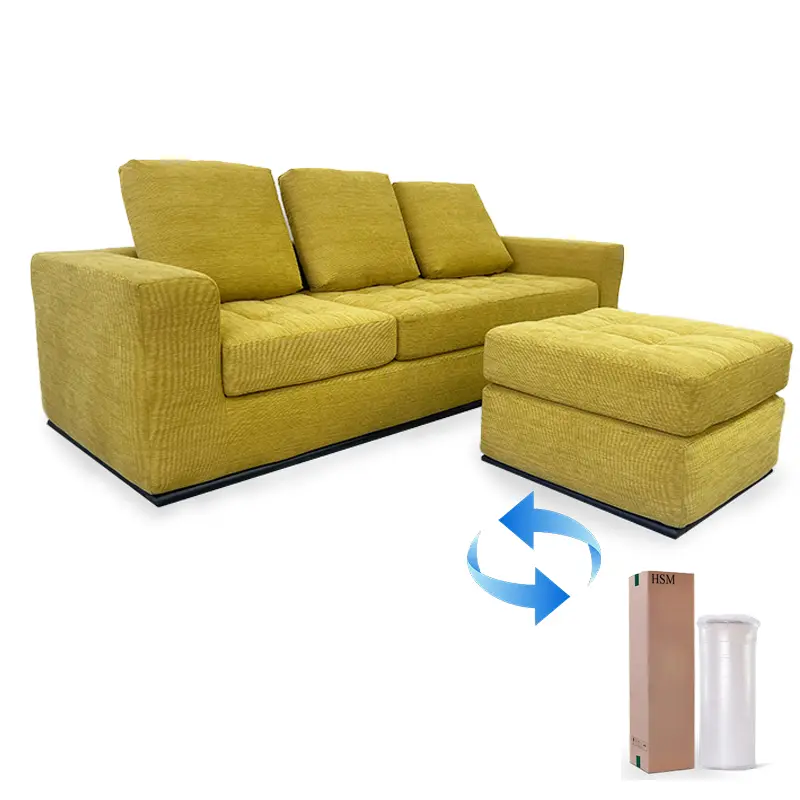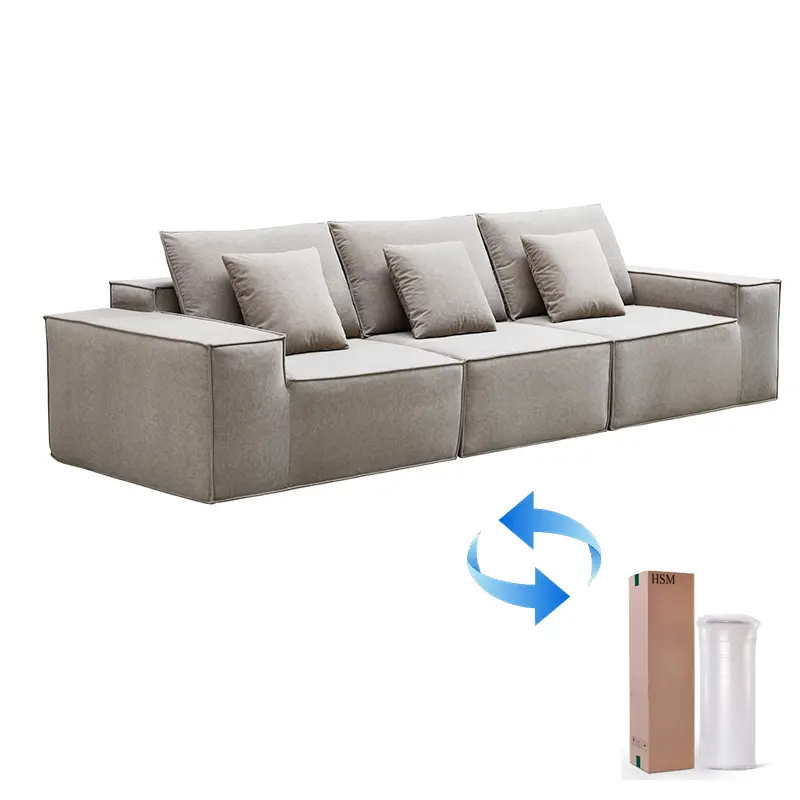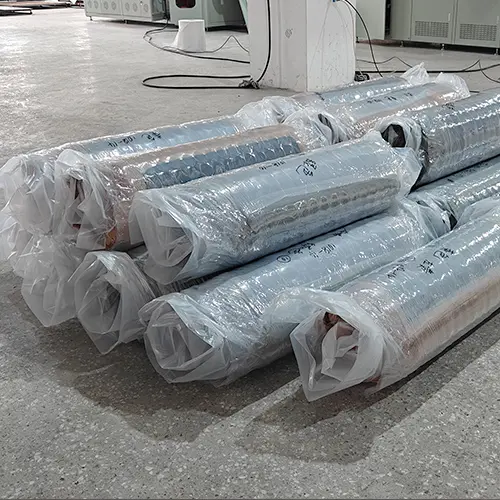Do compressed sofas lose quality over time?
Compressed sofas have gained popularity for their space-saving features and easy transportation. However, one common concern is whether they lose quality over time. The durability of a compressed sofa depends on factors such as materials, construction, frequency of use, and maintenance.
Key Factors Affecting the Longevity of Compressed Sofas
1. Frame Stability: The Foundation of Durability
The frame plays a crucial role in a sofa’s longevity.
-
High-quality materials: Kiln-dried hardwood and reinforced metal frames last over 10 years with minimal deformation.
-
Lower-quality materials: Softwood or composite board frames may loosen or crack within 3-5 years.
-
Compression impact: Frequent folding or unfolding can wear out hinges and locking mechanisms. Opt for modular clip-lock or hydraulic systems for reduced mechanical strain.
2. Cushion Resilience: Retaining Shape Over Time
Compressed sofas typically use high-density foam or memory foam for cushioning, but their durability varies:
| Foam Type | Density (lb/ft³) | Expected Lifespan | Risk of Deterioration |
|---|---|---|---|
| High-Density Foam | ≥1.8 | 5-8 years | Retains 80% resilience if well-maintained |
| Low-Density Recycled Foam | <1.8 | 2-3 years | Prone to permanent sinking |
| Memory Foam | 3-5 | 5-7 years | Affected by humidity and temperature |
Pro Tip: Choose cushions with CertiPUR-US certification to ensure long-term elasticity and minimal sagging.
3. Fabric Wear and Maintenance
The upholstery material determines the sofa’s appearance and resistance to wear:
-
Best options: Polyester blends, microfiber, and velvet with protective coatings can resist stains and fading.
-
Challenges: Natural fabrics like cotton or linen require frequent care and may show wear within 3 years.
-
Removable covers: Extend fabric lifespan by allowing for easy cleaning and professional care.
Maintenance Tip: Clean upholstery with a vacuum weekly and use fabric protectors like Scotchgard to prevent stains.
4. Usage Frequency and Environmental Factors
-
Heavy daily use: Hotels or commercial spaces experience faster wear (~50% of home-use lifespan).
-
Climate impact: Prolonged exposure to direct sunlight or high humidity can degrade foam and fabric.
-
Weight limit: Overloading (>300 lbs per seat) may accelerate frame and cushion wear.
How to Extend the Life of Your Compressed Sofa
-
Regular maintenance: Tighten frame screws every 6 months and rotate cushions yearly.
-
Avoid extreme conditions: Keep in a humidity-controlled environment (below 60%) and away from direct sunlight.
-
Proper weight distribution: Do not exceed manufacturer’s weight limits to maintain structural integrity.
Conclusion
Compressed sofas do not necessarily lose quality over time if they are made from high-quality materials and properly maintained. By choosing sturdy frames, high-density foam, and durable fabrics, along with regular upkeep, you can extend the lifespan of Your Sofa to8-12 years.








